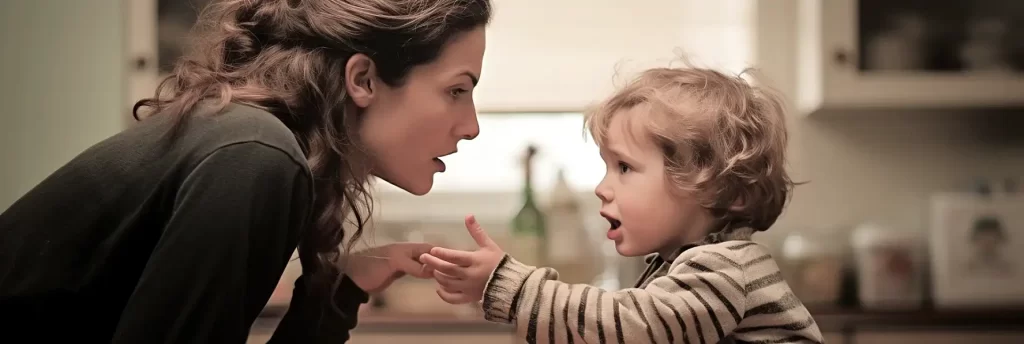
Divorce is emotionally draining to parents and children. Given that divorce often results in changes to a child’s schedule, relationships, and housing situation, the divorce process can be extremely challenging.
For the custodial parents who are responsible for guiding and disciplining the child in the absence of the non-custodial parent, this adjustment can be particularly difficult – particularly when it comes to child discipline.
Tips For Child Discipline After Divorce
Recognizing How Divorce Affects Children’s Behavior
Parents should be aware of the possible behavioral repercussions of divorce before diving into specific disciplining techniques for kids.
According to studies, children of divorce may struggle with a variety of emotional and behavioral issues, such as sadness, anxiety, and acting-out behaviors like violence or defiance.
It is crucial for parents to be aware of the potential effects of the divorce on their child’s emotional health and behavior, even though not all children will display these behaviors.
It is also crucial to understand that children’s reactions to divorce might vary based on their age and developmental stage.
Younger children may find it more difficult to adjust to the changes in their daily routine and the loss of their primary caregiver.
They may exhibit regressive tendencies like bed wetting or tantrums, or they might become too dependent.
As they try to adjust to the changes in their family dynamic, older kids and teenagers may be more likely to exhibit behavioral difficulties like resistance or acting out.
Setting Up Expectations and Boundaries
Setting up clear expectations and boundaries for your child is one of the best ways to discipline them after a divorce.
This can assist in giving your child a feeling of order and stability during a period of significant change and upheaval. Here are some techniques for setting up limits and expectations:
Establish clear rules and consequences: Work with your child to create rules and punishments for their actions.
Make sure your child is aware of what is expected of them as well as the consequences of not living up to those expectations. Apply these guidelines and penalties consistently.
Have frank conversations with your child: Maintain open communication with your kids.
Encourage children to talk to you about their ideas and emotions while paying attention to what they have to say.
By doing so, you will be better able to appreciate your child’s viewpoint and meet their requirements.
Be forceful but fair: It is crucial to be both firm and empathetic while enforcing rules and punishments.
Make sure your child is aware of the fact that, despite your love and desire for their welfare, some behaviors are not acceptable.
Managing Challenging Behaviors
Despite your best efforts to set up distinct expectations and boundaries, your child may still display problematic behaviors after the divorce.
A strategy for effectively and constructively handling these behaviors must be in place. Here are some techniques for controlling problematic behaviors:
Determine the root cause: Look for the fundamental reasons behind your child’s conduct. Is the divorce a factor?
Do they have any significant problems at school or with their friends? Your ability to respond depends on your ability to identify the behavior’s underlying causes.
Employ positive reinforcement: Encourage your youngster to display positive actions by employing positive reinforcement.
For instance, if your child struggles with anger, you could praise them when they express their emotions verbally as opposed to physically.
Exercise empathy: When handling difficult behaviors in your child, try to imagine yourself in their position.
This may enable you to react more empathetically and successfully.
Co-Parenting and Discipline
Divorced parents frequently need to co-parent and collaborate in order to set up regular discipline for their children.
This can be difficult, especially if the parents have a lot of disagreements or fights. But it is crucial to put the child’s interests first and collaborate.
Be open with your co-parent in communication: Maintain a line of contact with your co-parent.
Even if there are differences or conflicts, try to communicate respectfully and constructively.
For parents, child discipline after divorce can be a difficult and complicated problem.
Parents, however, can offer a stable and encouraging environment for their child during this trying time by understanding the potential effects of divorce on child behavior, setting clear boundaries and expectations, managing challenging behaviors effectively, and co-parenting consistently.
It is crucial to put the child’s needs first and collaborate with the other parent.